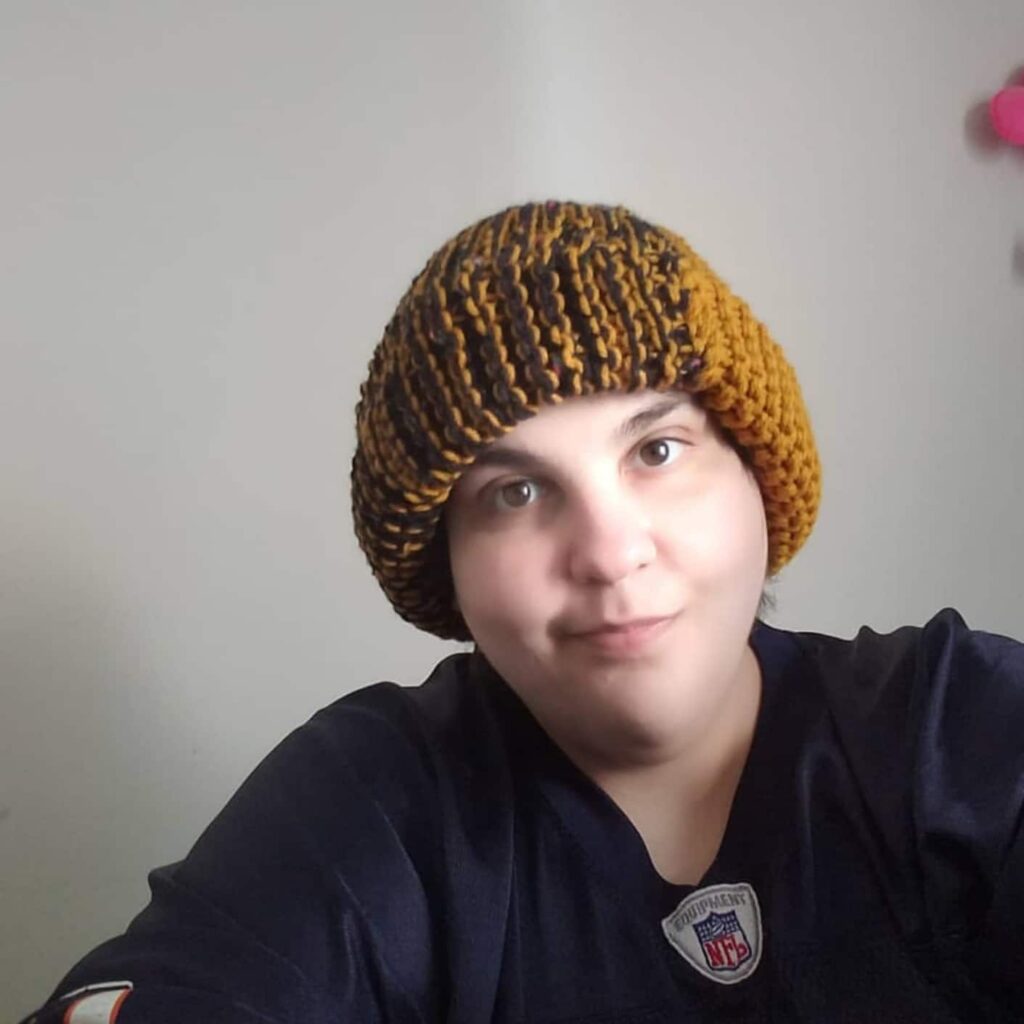I never expected to be diagnosed with cancer. Especially not at the age of 29. I don’t think anyone does.
While my outlook today may be positive, when you’re living with cancer (in my case, Hodgkin lymphoma), it can be overwhelming. Many people will tell you to be brave, but I had to figure out what that meant for me. I realized being brave doesn’t mean I don’t worry or have fears about my health. It meant recognizing that I was the first line of defense in my personal journey with Hodgkin lymphoma and the responsibility was on me to take charge.
With this realization, I started asking my doctors every question I had about my diagnosis and treatment plan. My friends and family became an integral part of my support team, even though asking for assistance felt like a weakness in the beginning. I quickly learned that my bravery and strength were derived from getting the education and support I needed to make it through this experience, and this is what enabled me to be my best advocate.
In Search of My Diagnosis
I learned early on the value of listening to my body and trusting my instincts. Before I was diagnosed with cancer, I had visited my primary care doctor for chest pains. I was told they were related to my irritable bowel syndrome, but when the pain persisted, and I ended up visiting six different emergency rooms over several months. Each time I was told that the pain was caused by stomach acid and sent home.
I knew something wasn’t right. I had to continue to voice my concerns and listen to the voice in the back of my mind, telling me that something was wrong with my body. When I finally visited the hospital where my dietician was on staff, they took me seriously and ordered a chest X-ray. It came back showing 14 masses in my chest — with one that was 6 inches large. A biopsy revealed my diagnosis: I was living with Hodgkin lymphoma.
I couldn’t believe it took that many doctors and emergency room visits to arrive at my diagnosis. What I realized in that moment is how important it is to keep pushing for more answers and advocating for oneself when you know or feel something is not right. Self-advocacy is key at every step.
Talking to Your Doctor Effectively
Like many people with cancer, I felt nervous about starting treatment and wasn’t quite sure what to expect. I had conducted some research about various treatment options and wanted to know more about potential side effects. I decided to keep a journal with all my questions that I could refer to during upcoming appointments with my oncologist. These conversations with my doctor allowed me to feel prepared, informed, and comforted as I started undergoing treatment.
I also used a journal to track any symptoms I was experiencing that felt “off.” After my second round of treatment, I was having some side effects that felt new for me, including hot flashes. I shared this with my doctor, and we figured out some approaches to help keep my body cooler, which really helped improve how I was feeling.
I urge anyone going through cancer to remember that it’s okay to ask questions! Whether it’s discussing treatment options, understanding the side effects, or asking your doctor to explain things in a way that makes sense to you, there is no question that is off-limits or unimportant. Being prepared and educated made me feel confident with my decisions and remain optimistic while going through treatment.
If you are recently facing a Hodgkin lymphoma diagnosis and want help talking to your doctor, visit HodgkinHub.com to hear from other patients and download this guide for Questions to Ask Your Doctor about Hodgkin Lymphoma.
Self-Advocacy Includes Asking for Help
Asking for help from those close to you is an essential part of advocating for yourself.
My mom was my primary caregiver and a big part of my support system. Having her there to accompany me to my appointments, listen and take notes, provide emotional support and assist with day-to-day tasks was integral to maintaining my mental and physical health. Whether it’s one person or a team of family and friends, leaning on others and knowing how and when to ask for help is key to getting through treatment.
I also found strength through patient groups. When I reached out to Stupid Cancer, I was so grateful to be introduced to several wonderful young people with Hodgkin lymphoma who were also looking for ways to connect with peers. Engaging and sharing our experiences with each other provided another level of support and education I needed to face my cancer head-on.
Once I was in remission, I had this lingering worry that my cancer would return. I knew relapse was possible. The friends I made through Stupid Cancer were there for me, letting me know it’s perfectly normal to have these concerns. Reach out to your support network of caregivers, friends, and other patients and survivors to talk about your feelings; sometimes just having someone there to listen can go a long way.
By Theresa Rees
For more resources about living with Hodgkin lymphoma and to hear from others who have been diagnosed with Hodgkin lymphoma, visit HodgkinHub.com or follow Hodgkin Hub on Facebook.
This content is brought to you by a partnership with Seattle Genetics, Inc.
Individual experiences may vary, and information shared in this article is not intended to replace discussions with your doctor. As part of Stupid Cancer’s Patient Scholarship Program, Theresa was connected to Seattle Genetics to share her story with the Hodgkin lymphoma community.
Hodgkin Hub was developed by Seattle Genetics as an online resource for people impacted by Hodgkin lymphoma seeking information around diagnosis and treatment. The website features a variety of valuable and personal stories, insights, and perspectives about life with Hodgkin lymphoma from real patients and survivors.
About Stupid Cancer
Stupid Cancer’s mission is to empower adolescents and young adults (AYAs) ages 15–39 affected by cancer by ending isolation and building community. Stupid Cancer offers a menu of in-person and digital programming designed to connect this community to age-appropriate resources so they can GET BUSY LIVING. Stupid Cancer is home to a community of nearly 400,000 cancer survivors, patients, caregivers, and AYA stakeholders.

